Review for Armchair Theatre: Volume 3
It seems to be one treat after another from Network this summer – and ‘Armchair Theatre Volume 3’ is no exception. Armchair Theatre was ITV’s flagship drama anthology series (think ‘Play for Today’) and this release contains twelve ‘plays’ initially broadcast in the 1950s and 1960s. The series became a showcase for the post-war generation of British writers who sought to place sensitive social topics – in particular the British class system – under the microscope. Released by Network in a seemingly random order (the previous edition had plays from the seventies – this the early sixties) and the selection shows no real pattern either – maybe availability of good prints, copyright, or just some subjective quality control. Whatever the case, it really doesn’t matter. In common with the previous two volumes, this is a delight from start to finish.
So – spread across 4 discs are the following delights. (Please note: Images do not necessarily line up with the descriptors. I’m not that organised!)
Now Let Him Go (1957)
Written by J.B. Priestley and starring Margaret Ashcroft, John Breslin and Hugh Griffith, this is an absolute gem – not least because of Hugh Griffiths powerhouse performance as a revered British artist, now on his death-bed. Priestley’s play is brilliantly crafted with a whole host of visitors circling his bedside, each with their own agenda. It may look a bit hokey (live recording to a large degree on TV cameras) but still packs a powerful punch! This episode also runs for 90 minutes (minus the ad breaks) rather than the standard 60. (There are some out-takes included too which are interesting from a historic perspective - but not a barrel of laughs!)
The Criminals (1958)
Written by Malcolm Hulke and Eric Paice and starring Stanley Baker, Raymond Huntley and Allan Cuthbertson. This is a rather intense ‘heist’ movie, with Baker forcing a group of respectable business people to assist him in tunnelling into a bank’s vaults. As the team progress, in the belief that he has their wives hostage in their homes, we learn that there is not necessarily a great deal of difference in either the behaviour or morality of the men. It sounds deeper than it is – and another highly entertaining episode with some fine performances.
A Night Out (1960)
Written by Harold Pinter and starring Tom Bell, Madge Ryan, Harold Pinter and Arthur Lowe. This is a psychological play about a ‘mummy’s boy’ whose crushing dominance over her son deeply affects his ability to socialise or have anything approaching normal relationships with women. Despite some sterling performances (and an amusing bit-part by Arthur Lowe who appears in more than one play on this set) I found it a bit heavy going. Quite disturbing.
Lena, O My Lena (1960)
Written by Alun Owen, directed by Ted Kotcheff and starring Billie Whitelaw, Peter McEnery and Colin Blakely. Alun Owen's Lena, O My Lena completed a loose trilogy with his two previous works for Armchair Theatre, No Trams to Lime Street and After the Funeral. Owen claimed that they were all based on the notion that people were "evading the truth about themselves”. Set in a Lancashire factory, a young student Tom, tries to return to his working class roots. He soon falls for a surly factory girl, Lena (Billie Whitelaw), who seems him as nothing more than a bit of fun.
The Man Out There (1961)
Written by Donal Giltinan and starring Patrick McGoohan, Katharine Blake, Clifford Evans and Jack Watson. Pure sci-fi fabness with McGoohan in fine form as the world’s very first (Russian) astronaut cut off from his base but curiously able to talk to a Canadian trapper’s wife (Katharine Blake). In their own way, they are both isolated and cut off from the world as dramas unfold around them.
The Omega Mystery (1961)
Written by James Mitchell, directed by Guy Verney and starring John Gregson, Donald Churchill, Stanley Meadows, David Spenser, Frank Gatliff, Miranda Connell and Patrick McAlinney. Butler and Robinson, the unconventional spycatchers first seen in 1960’s Armchair Theatre drama Flight from Treason, return – this time to track down a saboteur at a nuclear research station. A period piece – and all the better for it! After all – this is TV from over fifty years ago.
Tune On the Old Tax Fiddle (1961)
Written by Ronald Hardy, directed by Charles Jarrott and starring Raymond Huntley, Norman Rossington, John Le Mesurier, Vivienne Martin and a pre-Benny Hill Henry McGee. It’s great seeing a few stalwarts, like Le Mesurier, in this comedic drama about a tax fiddle. Toby Dickinson gets an unexpected visit from the inland revenue after a colleague writes an anonymous letter. Let the battle commence!
Afternoon of a Nymph (1962)
Written by Robert Muller, directed by Philip Saville and starring Janet Munro, Ian Hendry, Peter Butterworth, William Gaunt, Patrick Holt and Aubrey Morris, this risqué titled play shows the attempts of a young actress to meet the right people at a party to help her career. This was The second of Robert Muller's seven plays for Armchair Theatre, and was a surprisingly cynical expose of the way ‘starlets’ were expected to prostitute themselves for an opportunity for a part. Janet Munro plays the wide-eyed Elaine as a complete naïve innocent. Worthy of note is a particularly sleazy Peter Butterworth. Ian Hendry plays the producer (reduced to making chocolate ads himself) who seems to have a genuine interest in Elaine – though who soon rejects her, complaining she is too like his younger and more ambitious self. Interesting that Hendry and Munro married for real the following year!
The Snag (1963)
Written by Donal Giltinan, directed by Jonathan Alwyn and starring Derek Francis, Barrie Ingham, Gwen Nelson, Patsy Rowlands and dear old Arthur Lowe again! Ed Crayshaw is a public relations man noted for his success with women; but he has some nasty shocks when he tackles Madame Emma and her niece Agatha, who run a salon selling foundation garments.
Living Image (1963)
Written by James Broom Lynn, directed by Philip Saville and starring Alec Clunes, Alexis Kanner, Kynaston Reeves, James Villiers and Elizabeth MacLennan, this is the tale of Robert Manders, a traditional portraitist and Royal Academician. When his son John returns from America with radically different ideas about art, conflict threatens to destroy their close and tender relationship. A fairly archetypal play about the ‘generation gap’ and traditionalism versus modernism.
Poor Cherry (1967)
Written by Fay Weldon, directed by Piers Haggard, and starring Dilys Laye, Jane Birkin, Judy Cornwell, Gwen Nelson and Peter Arne. Cherry’s marriage to Brian may have stagnated, but she finds plenty of compensation in her work with Philip Rick, a candidate in the local election. When her home becomes a campaign headquarters, the two are conveniently thrown together. Her friend, Abbie is more interested in a steady home life than politics – and it’s not long till a complete drama unfolds at the committee meeting.
There are also a couple of ‘special features’ included in Volume 3. First up, on disc one, is the aforementioned ‘Now Let Him Go’ alternate takes and on Disc 4 you’ll find a complete additional play. Old Man’s Fancy was recorded on New Year’s Eve 1964, but was never transmitted. Sir Harold’s dalliance with a much younger woman is cause for consternation among his children. Starring Clifford Evans, Robert Hardy, Peter Jeffrey and Meg Wynn Owen, and written by Evan Jones, it’s hard to see why this one was pulled.
Picture quality ranges from decidedly dodgy to surprisingly passable though these were all shot in studios and laid off to tape so we should be grateful they survived at all. Once you get used to the look and feel, the power of the drama generally transcends – though there are some disappointing audio fluffs (mike in the wrong place) which means occasional dialogue is lost – though this as a result of their live recorded nature. You could argue it all adds to the charm!
An absolutely essential purchase for anyone with even a modicum of interest in archive TV.
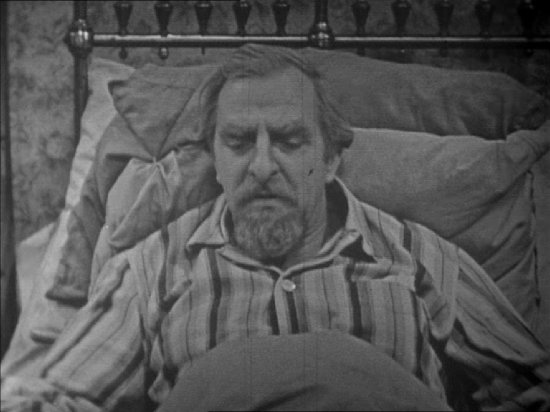
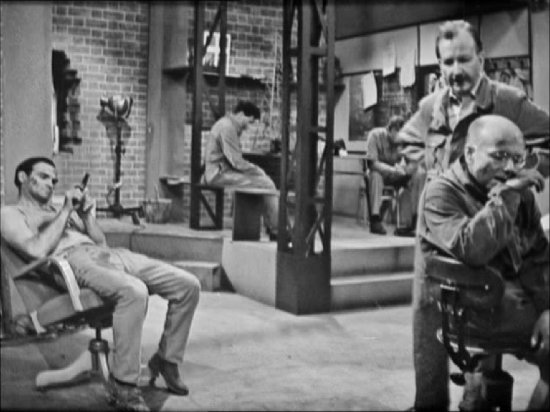
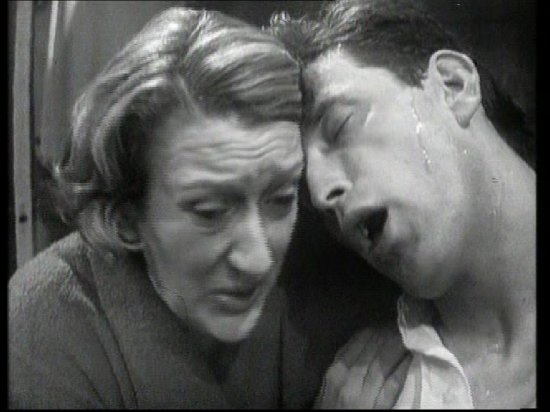
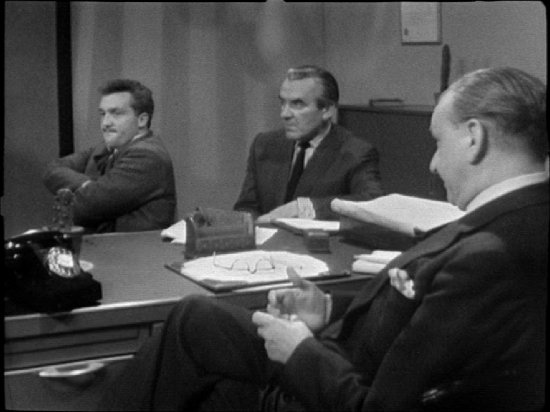
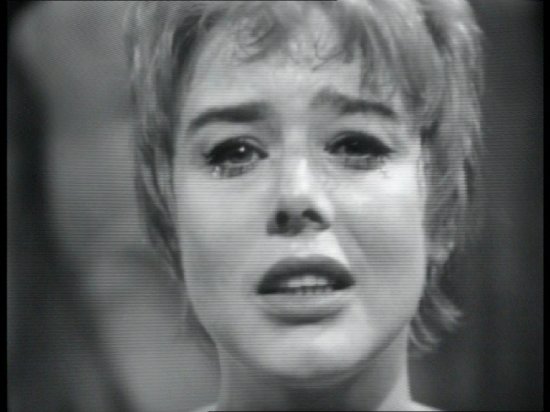
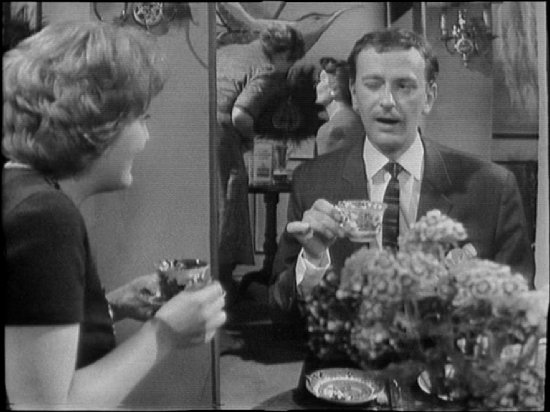
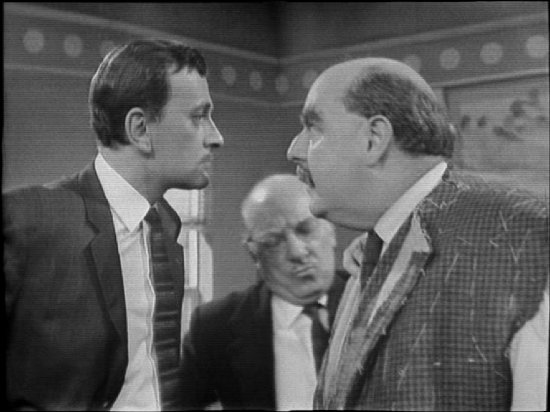
Your Opinions and Comments
Be the first to post a comment!